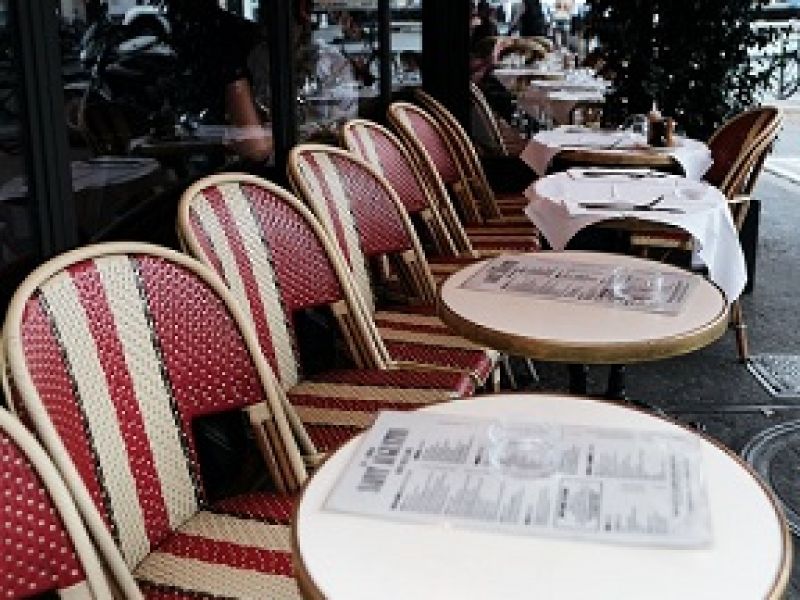Boasting the 5th biggest economy in the world, France is an economic powerhouse that’s increasingly friendly to entrepreneurs, both home-grown and from overseas. As the largest country by size in the European Union, France enjoys thriving agricultural, manufacturing, tech, service and tourism industries, and abounds with opportunities for business people looking to start a business in France.
Blessed with beautiful landscapes as diverse as the wild Atlantic coast of Brittany, snowy slopes of Chamonix and high-rise modernity of Paris, France is truly diverse and offers something for everyone. But while every area of France has something special to offer, for many aspiring expats, it's the south of France that holds the most allure - with mellow countryside and a Mediterranean glamour that's hard to resist.
There are a variety of reasons why expats are drawn to the south of France, from 300 days of sunshine a year to the promise of a new, more relaxed lifestyle, but there are also entrepreneurial motivations for starting (or expanding) a business in this area. The laid-back atmosphere and Mediterranean culture of the south of France make these regions no less dynamic, and business people from every sector can find success here.
In follow up to our guide, Where's Best to Start a Business in Northern France, this article explores the regions of the sunny south of France, and the relative advantages to businesses looking to put their roots there.
Occitanie
Occitanie is the second largest region in France, bordered by Spain and Andorra over the Pyrénées in the southwest, and the Mediterranean sea to the southeast. A diverse region with a variety of landscapes, Occitanie is rich in cultural heritage, and is home to everything from Roman amphitheatres to charming medieval villages.
Related article: Start A Business In France in 8 Steps
The region also has welcoming and inviting weather, with mild winters and glorious summers, and a more Mediterranean feel to its cuisine, with seafood playing a starring role. With a warm and gentle coastline contrasting with its western mountainous landscapes, Occitanie is also perfect for lovers of the outdoors - whether their particular penchant is for hiking, skiing, rafting or simply sunbathing.
● Occitanie is the location two major cities, Montpellier and the region’s capital Toulouse.
● Montpellier is home to one of the oldest universities in the world and has a thriving student population, which comprises nearly 25% of its population.
● Over the last 30 years, the city has benefited from some of the strongest economic and demographic growth in the country.
● The city of Montpellier is also a leader in the video games industry, with a flourishing business and creative culture where several startup studios launch each year. In 2018, Ubi Global ranked the Business & Innovation Centre (BIC) in Montpellier the second-best incubator in the world, growing around the major video games company Ubisoft, which was established in Montpellier in the 1990s. (See our post How to start an indie video game company).
● Toulouse is the centre of the European aerospace industry, and was found in rankings conducted by L'Express and Challenges to be the most dynamic city in France. The Toulouse airport’s busiest services are those that fly to Parisian airports, with millions of passengers travelling between the two cities every year.
● Occitanie is extremely well connected, with its place by the sea ensuring that other locations on the Mediterranean coast are accessible by boat. Close to both Spain and Italy, the region has an exceptional location that allows entrepreneurs to reach all European markets.
● With eight motorways passing through the region, two high-speed train stations, three international airports and France’s largest network of regional seaports (including fishing, commercial and river ports), Occitanie has an excellent logistical network that businesses can take advantage of.
● The region ranks first in its rate of business creation, as well as enjoying healthy R&D expenditure and the strongest GDP growth in France.
● While France, in general, is known for winemaking, Occitanie is particularly famous for wine production, with sweeps of vineyards stretching across the warm countryside and a total of 263,000 hectares “under vine”. Creating a clear third of all the wine made in France, the region boasts 24,000 wine farms and 380 co-operatives. The organic wine industry is also particularly well represented here, with 36% of the organic vineyards in France found in the region. (See our post How to start a wine business in France.)
● Industry, agriculture, manufacturing, tourism, research and a coastal economy all thrive in Occitanie, as the diversity of the region applies not only to its landscape but also its multi-sector economy.
● Occitanie has a variety of great locations to start and grow a business, including the cities of Toulouse and Montpellier, and several industrial and business parks, like Occitanie Zone Économique (OZE). There are also “competitiveness hubs” across a range of sectors.
● This region is the 4th most popular tourist area in France, with 30 million visitors attracted every year by the Mediterranean beaches, mountain landscapes and elegant spas.
● Occitanie has the third-largest student population in France, with 230,000 people attending its two universities and 35 Grandes Écoles. There are also nearly 30,000 researchers in the region.
Nouvelle-Aquitaine
The biggest of the 13 metropolitan regions and located in the southwest of France, Nouvelle-Aquitaine is famed for its quality of life, cultural attractions and breathtaking landscapes. Home to the characterful Basque country, several UNESCO World Heritage sites (including the capital Bordeaux’s historic centre and the stone age cave paintings of Lascaux), the Atlantic Pyrénées and 720km of coastline, this region has plenty to attract those wishing to settle in France.
● Nouvelle-Aquitaine has an excellent transport infrastructure and enviable strategic position within the European Union. Ranging from the Atlantic coast to the Spanish border, Nouvelle-Aquitaine enjoys easy accessibility to European markets, and the vibrant city of Bordeaux is only 2 hours from Paris by high-speed train.
● The region’s modern and expanding transport infrastructure includes seven international airports, an extensive rail network, four commercial ports, navigable rivers and multimodal freight hubs.
● At 84,000 km², Nouvelle-Aquitaine is the largest French region, and it is also its 3rd-largest economic power with a GDP of 158 billion euros.
● Like many regions in France, Nouvelle-Aquitaine has an extremely diverse economic and industrial landscape, with opportunities abounding in industries as diverse as pharmaceutical research to industrial ceramics. Nouvelle-Aquitaine is considered a leader in e-health, silver economy, aeronautics, food industry, tourism, eco-technology, materials and laser technology.
● Bordeaux is a thriving city and the seventh-largest metropolitan area of France. The area is particularly friendly to startups, and is known as the “French Tech City”. (See our post How to start a cleantech startup in France.)
● Nouvelle-Aquitaine is also a leading region for R&D expenditure and is home to ten 10 competitiveness clusters including Aerospace Valley, ID4Car, de la Céramique, Alpha Route des Lasers and Xylofutur.
● With more affordable real estate, setting up a business in this region is often comparatively cheaper than other areas of France, with average costs 20-30% lower than Paris.
● One of the biggest advantages of Nouvelle-Aquitaine is that it is a leading agricultural region, with a large number of organic farms and a dynamic and diverse agri-food industry. Viticulture and alcohol production is also a staple here, with vineyards and distilleries in Bordeaux and Cognac bottling some of the most renowned wines and spirits in the world.
Provence-Alpes-Côte d'Azur
When people imagine a quintessential image of the South of France, it’s the sunny resorts, lavender fields and mellow stone architecture of Provence-Alpes-Côte d'Azur that is likely to spring to mind. Traditionally known as a playground of the rich and famous, Provence-Alpes-Côte d'Azur is home to the French Riviera, as well picturesque villages, outstanding gastronomy, and a painterly tradition featuring artists such as Van Gogh, Chagall, and Paul Cézanne.
With a landscape that encompasses everything from olive groves to Alpine canyons, a famously laid-back atmosphere and a warm climate, this area is particularly popular with visitors and expats alike.
● Bordering Italy, the Principality of Monaco and the Mediterranean Sea, the Provence-Alpes-Côte d'Azur has excellent links to southern Europe.
● The region’s capital, the coastal city of Marseille, is the second only to Paris in terms of size and the third most populated city in France.
● Marseille is a coastal city and gateway to other locations across the Mediterranean, as well as North Africa and the Middle East, making this an excellent base for trade and logistics.
● Fos-sur-Mer, which is just to the west of Marseille, is a major industrial zone that counts crude oil as a major import and steelmaking and petrochemical manufacture as key industries.
● There are exceptional transport links across this region, with international airports in Marseille and Nice, and a comprehensive rail system that connects cities such as Cannes and Monaco and stretches into Italy.
● The French Riviera is considered to be the European Silicon Valley, with Nice enjoying a strong startup and business ecosystem, especially in the Information & Communication Technologies (ICT) sector. Some of the world's biggest companies, including IBM, are represented here. (Nice is also featured in our post The best cities for tech startups in France.)
● A 2,400-hectare technology park, Sophia Antipolis, is the first technopole in Europe and houses 2,500 companies, which are worth 5.6 billion euros and employ more than 38,000 people from more than 80 nationalities.
● Marseille is an excellent location for businesses in the FMCG and automotive industries, as well as the maritime sector.
● The city of Cannes, although small, has an international reputation through the annual cultural event of the Cannes Film Festival, while Grasse is the perfume capital of the world. This region also had a great artistic tradition which can be helpful to anyone starting a business in the arts and art selling, with famous names such as Vincent Van Gogh having lived in and painted across the area.
● Another port city on the Mediterranean coast, Toulon has an extensive military harbour and is a French naval base.
● Unusually for France, agriculture has less importance in this region, and 90% of the population live in urban areas. Despite this, the specialised production of fruits, vegetables, flowers and wines still form an essential part of the economy and landscape.
● The Provence-Alpes-Côte d'Azur is the second most visited area of France after Paris, and tourism is a driving force behind its dynamic economy. With over 31 million visitors a year and enduring popularity springing from its international reputation as a beautiful, sunny destination full of history and heritage, opportunities abound for anyone wishing to enter the tourism industry here. (See our post How to start a holiday cottage or gite business in France.)
Auvergne-Rhône-Alpes
Situated in the southeast of France, Auvergne-Rhône-Alpes is a markedly dynamic region, accounting for 11.9% of French economic output and enjoying a GDP equivalent to that of the country of Finland. The location of the internationally renowned skiing destination of Chamonix and one of France’s most important cities, Lyon, Auvergne-Rhône-Alpes is bordered by five other administrative regions and two other European countries.
● Another well-loved tourist region, Auvergne-Rhône-Alpes is popular with ski-enthusiasts, mountaineers, foodies and history buffs. In the east, the French Alps provide world-class winter sports and summer hiking opportunities, while the central Rhone Valley has a rich architectural heritage. Auvergne, to the west, is a rural area dotted with charming villages and benefiting from a striking volcanic landscape.
● Chamonix–Mont-Blanc is perhaps the most famous mountain in the Alps and the highest point in Europe, and attracts visitors from all over the world. The surrounding economy is driven by tourism and the winter sports industry.
● Auvergne-Rhône-Alpes is bordered by Italy and Switzerland, making the area strategically placed on main French and European transport routes. This has created an atmosphere of openness with international markets, making the region the second-most important for imports and exports, as well as contributing to the creation of 4,400 establishments with foreign capital.
● The Rhone Valley is the second-largest wine-growing region in France, producing some of the world's most famous wines. Alongside the main business of making and selling wines, growers here have pioneered another branch of the French tourist industry with 14 “wine routes” for people to explore.
● The Auvergne-Rhône-Alpes capital, Lyon, is at the intersection of major European traffic routes and in easy reach of many of Europe’s great cities via air and train travel.
● The creation of competitiveness clusters in Lyon has fostered an excellent centre for research and innovation, an active scientific community and world-beating expertise in life science, clean energy and the digital sector.
● Manufacturing is a key aspect of the business landscape in this region, providing employment for half a million people. With both high-tech and traditional industries represented here, including biotechnology, electronic, mechanical engineering and textiles, Auvergne-Rhône-Alpes has a healthy and diverse manufacturing base.
Whatever business you’re in, the South of France has something for most entrepreneurs. If you need further information on how to set up your business in France, you can download the free guide below which gives you all the details on company formation, tax and accounting, how to open a business bank account and register an address. Or you can take a look at our video guide to starting a business in France.







